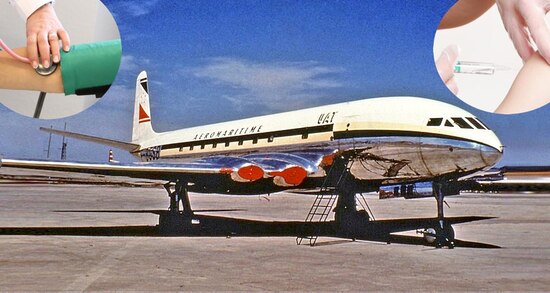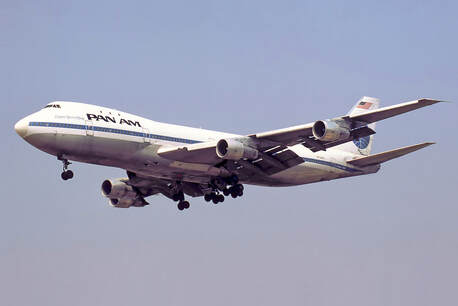Author: Hamzah RahmanYear 3 student - Guy's, King's and St Thomas' School of Medicine & Space Enthusiast!  de Havilland Comet aircraft de Havilland Comet aircraft The General Practitioner (GP) medical professional has undoubtedly played a major role in providing a plethora of care packages and programmes for individuals seeking to travel; from immunisations and vaccinations to advice and even guidance for mothers in the late gestational stage. The advent of jet flight allowed the masses to venture to destinations that only aristocracy could once afford, which in turn generated a greater need for primary healthcare management. The GP is therefore the point of access to these healthcare packages and consequently plays a pivotal role in enabling tourists to travel safely. This responsibility is deeply intertwined with the historic increase in accessibility to affordable flight. The first British commercial jetliner was the de Havilland Comet in 1949. This aircraft enabled more people to travel further, as well as reducing the price of tickets substantially. The GP during this age would have played an important role in ensuring that passengers were fit to fly, by managing their pre-flight healthcare requirements.  Boeing 747-121 | Image credit: Aldo Bidini Boeing 747-121 | Image credit: Aldo Bidini The Boeing 707 soon joined the aviation world in 1957 and dramatically changed the way we travelled; it opened flight corridors that were once untenable, and consequently, accessed a greater consumer market - the working classes. In 1969, Boeing unveiled the revolutionary 747, coined the “Jumbo Jet” due to its sheer size, which resulted in greater passenger capacity and far more affordable tickets. With such quantum leaps forward in jet aviation, by the mid-70s the British GP was providing care and advice to thousands of travellers from all walks of life, different backgrounds and with all manner of pre-existing health conditions. The workload of the GP thus became much more diverse and they gained great responsibility in permitting the public to exercise their freedom to travel safely. Just as jet flight was once an exclusive mode of transport for those from higher socio-economic backgrounds, spaceflight has now emerged onto the world market with exclusive and expensive tickets to fly. Undoubtedly, spaceflight will become more affordable in the coming years and decades, and as such will inevitably require a more established initial healthcare access point for travellers- a service that GPs could provide. As space tourism flights become more accessible through lower prices and increased provision, the remit of travel healthcare provided by general practice could evolve in the near future to encompass spaceflight health clearance.
|
Welcometo the InnovaSpace Knowledge Station Categories
All
|
InnovaSpace Ltd - Registered in England & Wales - No. 11323249
UK Office: 88 Tideslea Path, London, SE280LZ
Privacy Policy I Terms & Conditions
© 2024 InnovaSpace, All Rights Reserved
UK Office: 88 Tideslea Path, London, SE280LZ
Privacy Policy I Terms & Conditions
© 2024 InnovaSpace, All Rights Reserved

 RSS Feed
RSS Feed